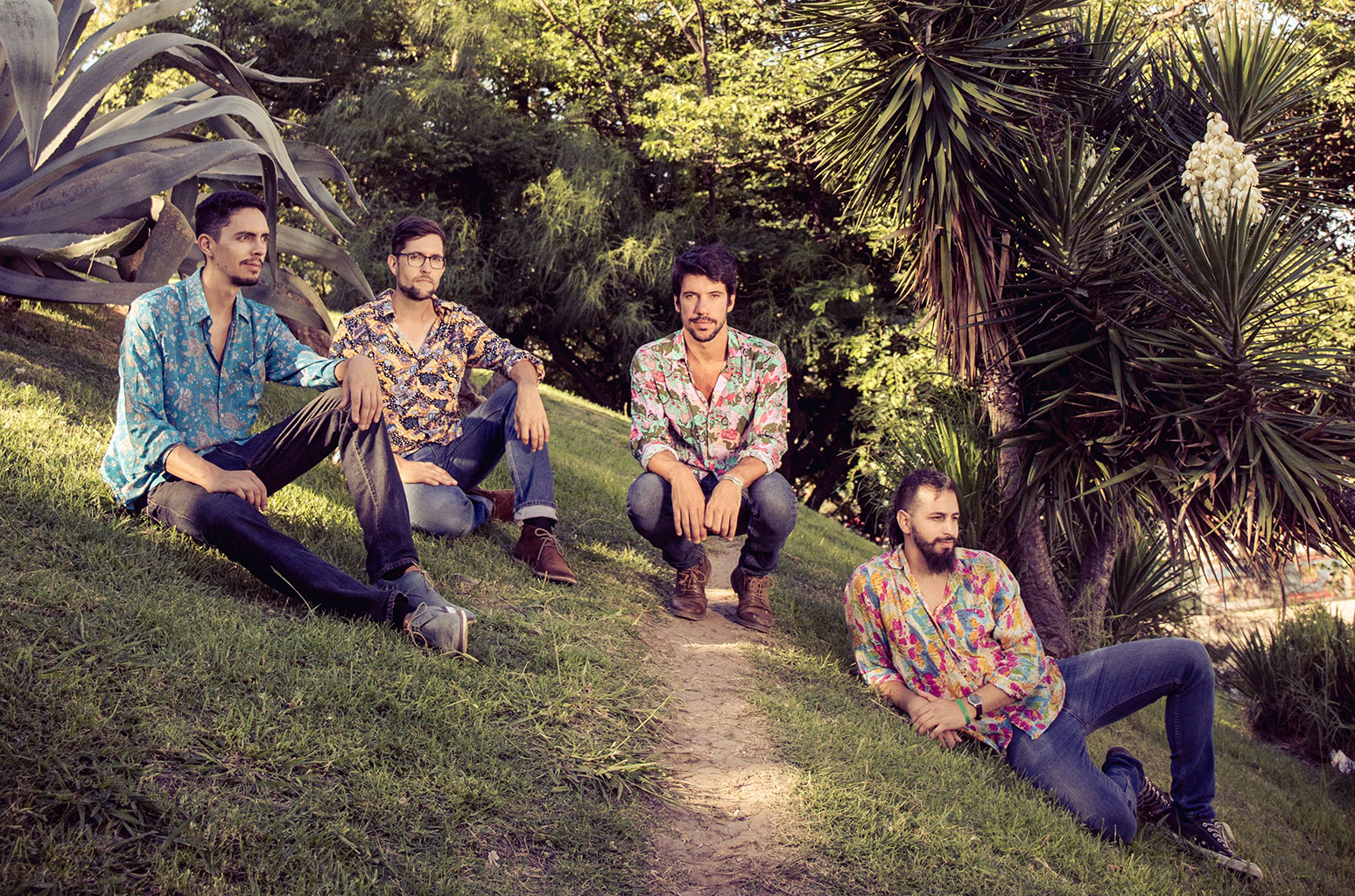“We would like to imagine the song would make a difference in the world,” Joe Troop tells Billboard of “The Dreamer” from Grammy-nominated “Rearrange my Heart” album.
Included in Che Apalache's first full-length Grammy-nominated album Rearrange my Heart is a song titled "The Dreamer" whose lyrics humanize the experience of nearly 11 million undocumented immigrants living in the United States — a group that includes roughly 700,000 people with temporary protection under the Obama-era policy Deferred Action for Childhood Arrivals, or DACA.
The melancholic song, inspired by Moises Serrano — a DACA recipient and queer activist from North Carolina — tells the real-life story of Serrano's growing up in rural America as an undocumented child facing systemic oppression and living in the shadows.
Joe Troop, frontman of the bluegrass quartet known for mixing folk songs with Latin beats, met Serrano at a conference in North Carolina back in 2017. There, they found parallels in their lives: Both men are openly gay, grew up in North Carolina and were immigrants in different countries — Serrano in the U.S. and Troop who resides full-time in Argentina.
"This song was basically an idea for me to understand a little bit more of what it’s like to be an undocumented immigrant in North Carolina," Troop tells Billboard in a phone interview. "It’s a very sort of desperate situation and I compare that to immigration in Argentina where I live, where I’m an immigrant, and it’s just night and day. I think it is a crime against humanity the way the United States approaches immigration."
Serrano, who will join the band at the Grammys ceremony Sunday, was heavily involved in the creation of the song and wrote the script of the powerful music video. "Joe was incredibly patient with me because the entire process, I was very harsh," Serrano tells Billboard. "And I think it's because it's my story and it’s the story of my entire community, the story of 11 million people. I am going to be super protective of the way that we are painted in any type of medium, whether that be music, television or print."
Che Apalache will be at the Grammys as contenders in the best folk album category. It will be theirs and Serrano's first time at the ceremony. "It’s kind of cool that the little band that could will be at the Grammys. When we got the nomination, it was a no-brainer and I immediately called Moises and said, 'Hey, you’ve got to come.'"
Troop explained that while they don't know what type of impact their song will have on immigration issues, "The Dreamer' is an "important song in our album and it’s a song we would like to imagine the song would make a difference in the world." Adding, "[Moises] being at the Grammys will perhaps make it easier for the song to get out. It’s kind of like a stab in the dark just hoping that something will work. You never know what will impact people. I’m just glad he’ll be there in Los Angeles."
Serrano, who arrived to the U.S. when he was 18 months old and whose family settled in North Carolina, is the subject of an award-winning documentary on Amazon titled Forbidden: Undocumented and Queer in Rural America. He grew up listening to songs by Los Tigres del Norte and one line from their song "La jaula de oro," has always stuck with him. "Even though the cage may be made out of gold, it never stops being a prison.” The lyrics "profoundly impacted me in the way that I think about art and music," Serrano says. "That is why I firmly believe in our documentary and 'The Dreamer.' These are the best platforms we can have in order to shape and change the culture around immigration."
DACA's future remains in limbo after the Trump administration rescinded the policy back in September 2017, calling it a "wrongful action" that protects people who were brought to this country as children. Currently, Congress awaits a Supreme Court ruling this summer on the legality of DACA.
"I always say I don’t want sympathy; I want people’s empathy, and those are two radically different notions," Serrano said. "And so, for me, once people process the song and they listen to it, I hope that they are impacted and moved to action because the undocumented immigrant communities have no more time to wait. We are talking about millions of people who have lived now decades in legal limbo with no end in sight."


